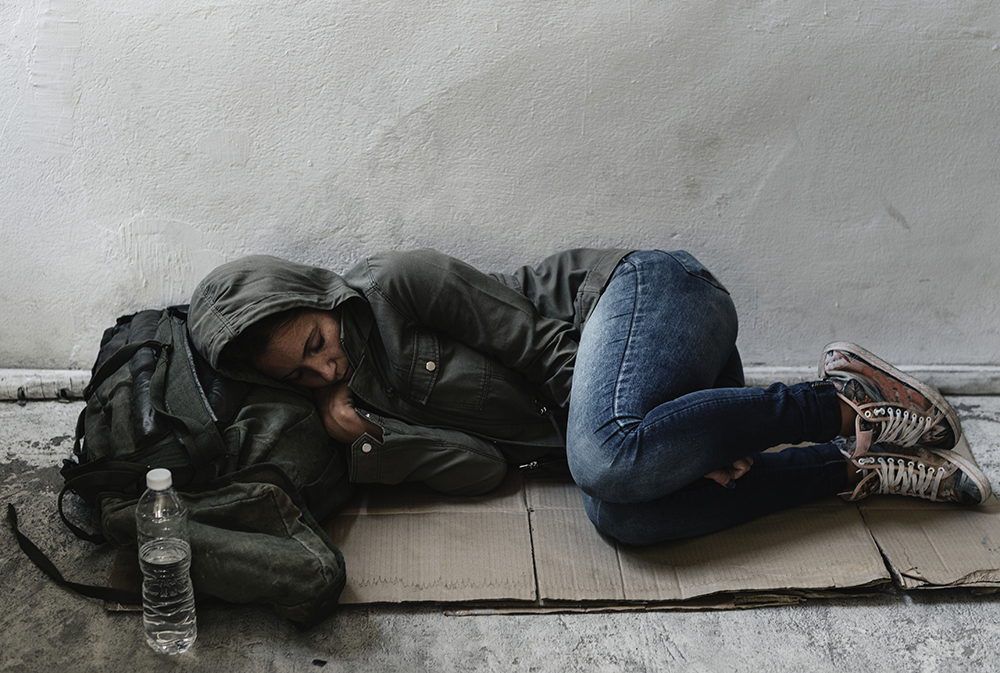Social Determinants of Health
The initiatives in this domain support high-need patients and assist providers in providing care by addressing SDoH factors. The efforts include advancing health equity by working with sectors on the factors that influence health, including employment, housing, public safety and food access.
Social Determinants of Health
Backpack Medicine Program

We are partnering with addiction treatment organization Huther Doyle to provide medical care and drug treatment to the unsheltered homeless in Monroe County.
Huther Doyle focuses on assisting individuals and families seeking recovery from substance abuse disorder and addiction by offering rapid access evaluation and research-based, individually focused recovery and wellness programs. Since its inception in 1977, Huther Doyle has established working relationships with a number of healthcare, SUD treatment, mental health treatment and social service provider agencies.
As part of this collaboration, we are providing technical support to ensure the program meets its goals. This support includes consultation on data and analytics, and a program evaluation report.
Huther Doyle will pilot a one-year Backpack Medicine Program referred to as “Project Hope” to provide “boots-on-the-ground” preventive and just-in-time medical interventions for unsheltered homeless individuals with substance abuse disorders. A mobile unit composed of peers and medical students from the URMC Street Medicine Program will visit homeless encampments two-three times per week.
The program will leverage telehealth and a Mobile Treatment Van to provide wound care, blood pressure and glucose monitoring, and substance abuse treatments. This grassroots intervention program is designed to meet people where they are to build trust and offer treatment to those who are most vulnerable and least likely to seek support on their own or until they are compelled to seek intervention at hospital emergency rooms.
As a social determinant of health and trust-building intervention, Huther Doyle will also provide healthy foods to encampment residents.
Our Community Partners

“For decades Regional Health Reach has been a leader in the community in providing healthcare and support services to those experiencing homelessness. Through our traditional clinic, mobile medical unit, and presence at shelters, our Healthcare for the Homeless program has touched thousands of lives. Health Reach is excited to partner with Finger Lakes Performing Provider System and MC Collaborative to expand our reach to unsheltered individuals, meeting them where they are, to provide the care they need.”
“I am excited to see ‘equity in action’ through this partnership with FLPPS, who recognizes the importance of lived experience and elevating the parent and patient voice to bring change across our health and behavioral health systems.”
“The Finger Lakes IPA, a partnership of the region’s community health centers, six behavioral health organizations, and the S2AY Rural Health Network, is very excited to be a part of this important initiative by FLPPS to support the critical need for access to developmental screenings for young children in our rural communities. This program will give us the ability to provide access to services that are often not available due to geographic and other barriers to care experienced by our patients.”
“The key to the success of this menu of services is our ability to have a two-way dialogue with doctors and other medical professionals about both health and social support needs at home. We’ve proven this model can improve patient outcomes and reduce unnecessary ED visits and hospitalizations, and that’s a win for everyone. It also reduces both physician and patient/family caregiver frustrations.”
“By expanding our Person In Crisis teams to include certified peer specialists, we will be able to assist even more of our residents in need in a humane and compassionate manner. In addition, by assisting residents in this new way, we are expecting that there will be a reduced number of people calling the PIC team because they are getting connected to the services they need.”

